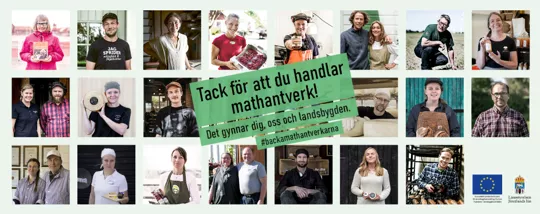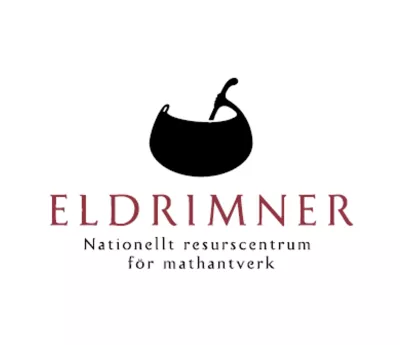General information
RDP Priority
- P3. Food chain and risk management
RDP Focus Area
- 3A: Agri-food chain integration & quality
RDP Measure
- M01: Knowledge transfer & information actions
Summary
This project used transnational cooperation and peer-learning to help strengthen the competences of Swedish artisanal food producers by improving their knowhow about direct sales methods and techniques via short supply chains. French experience was shared and adapted and applied by the Swedish project beneficiaries to improve their sales and efficiency.
Results
- Overall, the target group gained invaluable knowledge about direct sales and short food chains.
- New collaborations and approaches in terms of sales channels contributed to increasing the competences of producers to expand their sales. This made their turnover become more stable and predictable throughout the year, thus reducing their vulnerability to external factors.
- Several participating companies changed and extended their businesses thanks to the project.
Context
In Sweden, the production and sale of artisanal food often depends on short food supply chains. These can include a high dependency on direct sales to customers, or with only one intermediary involved. Despite the aim of the Swedish national food strategy to reduce the regulatory burdens and complexities for artisanal food producers, fees and regulatory requirements remain challenging obstacles. For these reasons, producers usually shy away from trying to engage with the wholesale market and limit themselves to their existing range of direct customers. This can potentially have negative effects on the efficiency and profitability of individual producers and the food industry as a whole.
Objectives
The objectives of the project included the following:
- To help strengthen the competences and sales techniques of artisanal food producers.
- To inspire project participants through an exchange of experience and knowhow from other regions in Europe.
- To develop new ways and methods of reaching wider markets with the aim of increasing sales and improving the efficiency and profitability of the producers and the industry as a whole.
- To help improve the conditions for improving sales within the parameters of the short food chain model.
- In the long term, the project hoped that these improvements would lead to the development and creation of more job opportunities in artisanal food production in rural areas.
Activities
The project involved:
- The development and production of a range of articles and films capturing a number of examples of artisanal food production and different selling methods and techniques in relation to the short supply chain characteristics of the industry. The articles and films were disseminated with the aim of sharing knowledge and experiences in the field of artisanal food production and sales.
- A capacity building conference with lectures on different methods and techniques for improving direct sales (171 participants).
- A study trip to France (12 participants).
Main results
- The beneficiaries of this project - rural businesses - gained increased knowledge about direct sales and short food chains. New collaborations and approaches in terms of sales channels contributed to increasing the competences of producers to expand their sales. This helped their turnover to become more stable and predictable throughout the year, reducing their vulnerability to external factors.
- Several participating companies changed and extended their businesses during the project. For example, one producer decided to start a farm shop and collaborate with another company.
- The conference and the learning materials (articles and films) provided the participants with an increased level of knowledge about methods and experiences of direct producer-to-consumer sales. The conference was specifically organised so that it also offered the opportunity for producers to meet, exchange experiences, network and initiate new collaborations around direct sales of artisanal food. These exchanges had very beneficial effects on the participants on how to streamline and develop their businesses.
- As a result of the study trip and the inputs by their French counterparts, the participants felt inspired and gained new knowhow about sales methods where producer and consumer are closely linked. Listening to the experiences of other actors in Europe provided the participants with an opportunity to reflect on their own activities. This process created new insights, ideas and knowledge for any future developments. The study trip also gave the participants an opportunity to exchange experiences and network among themselves.
Key lessons and recommendations
- The COVID-19 pandemic highlighted challenges and opportunities for artisanal food companies. Their small size provides flexibility but also exposes them to risk. Direct contact with their customer base can help them to quickly change and adapt in contrast to the wider industry.
- It is important to keep the project work broad. This allows for sufficient consideration of all relevant thematic aspects. For example, looking at the common factors as well as the differences with other industries and/or with different countries can lead to the generation of new ideas and innovative perspectives about some of the less obvious aspects of one’s own industry.
- To involve and maintain a close dialogue with the project target group right from the start can be very beneficial. This approach can inform the overall direction of the project and deepen aspects where industry and the target group have the greatest need and benefit.

